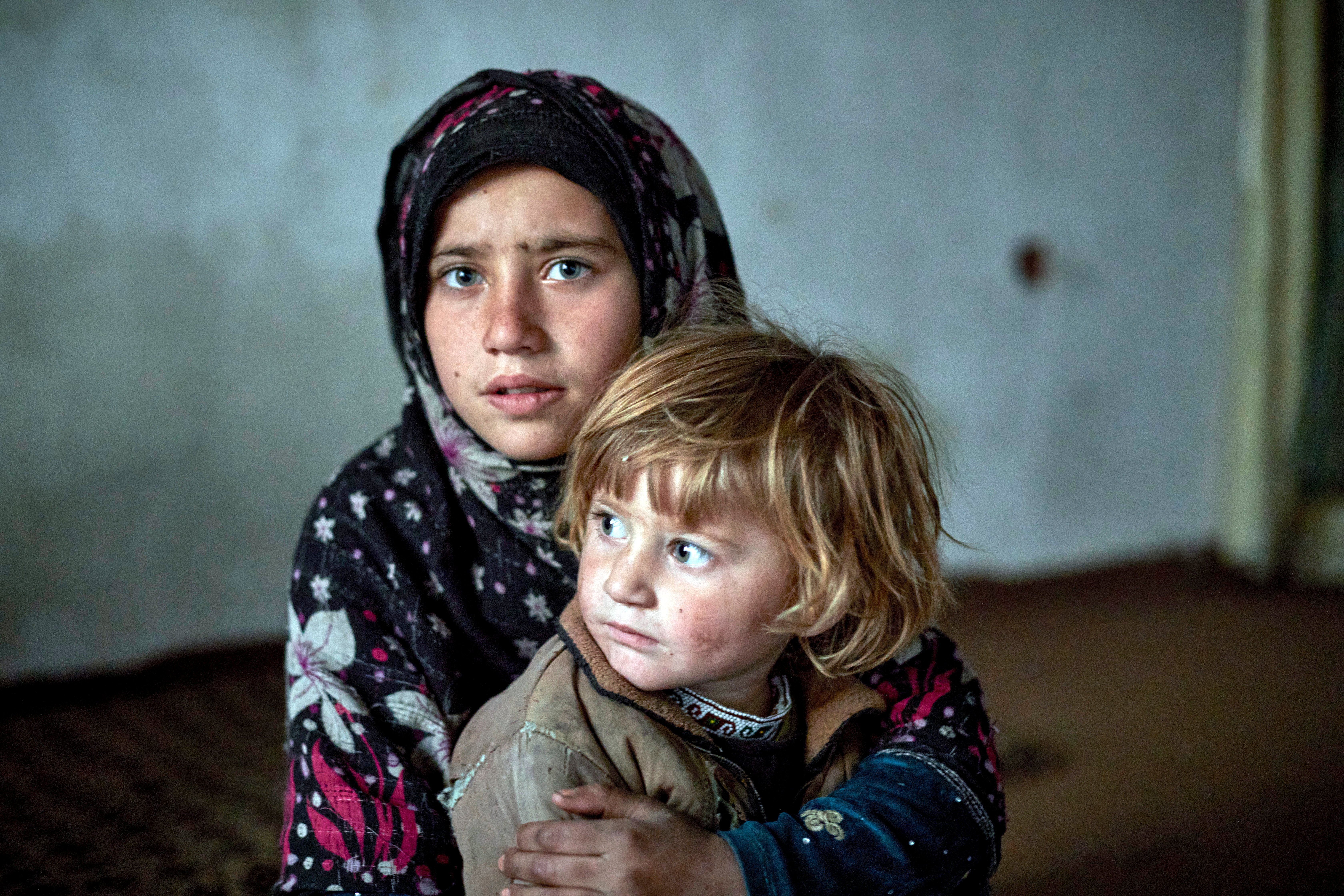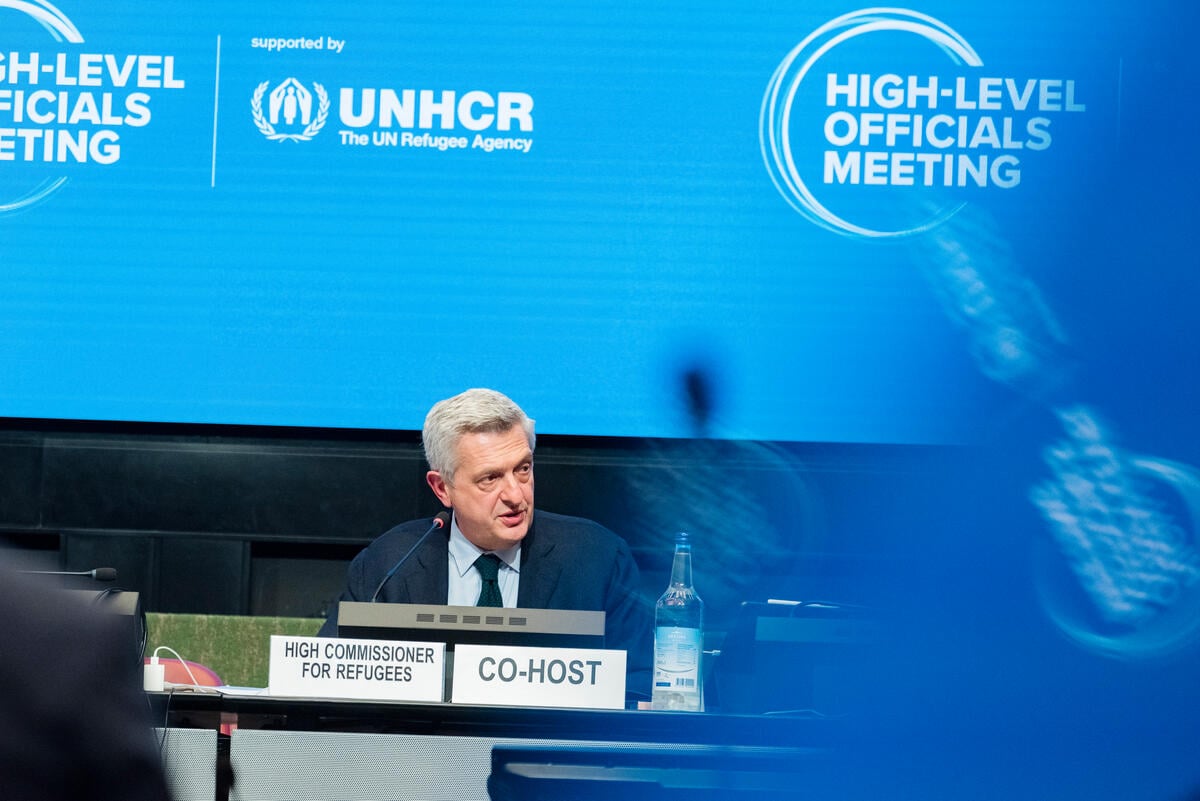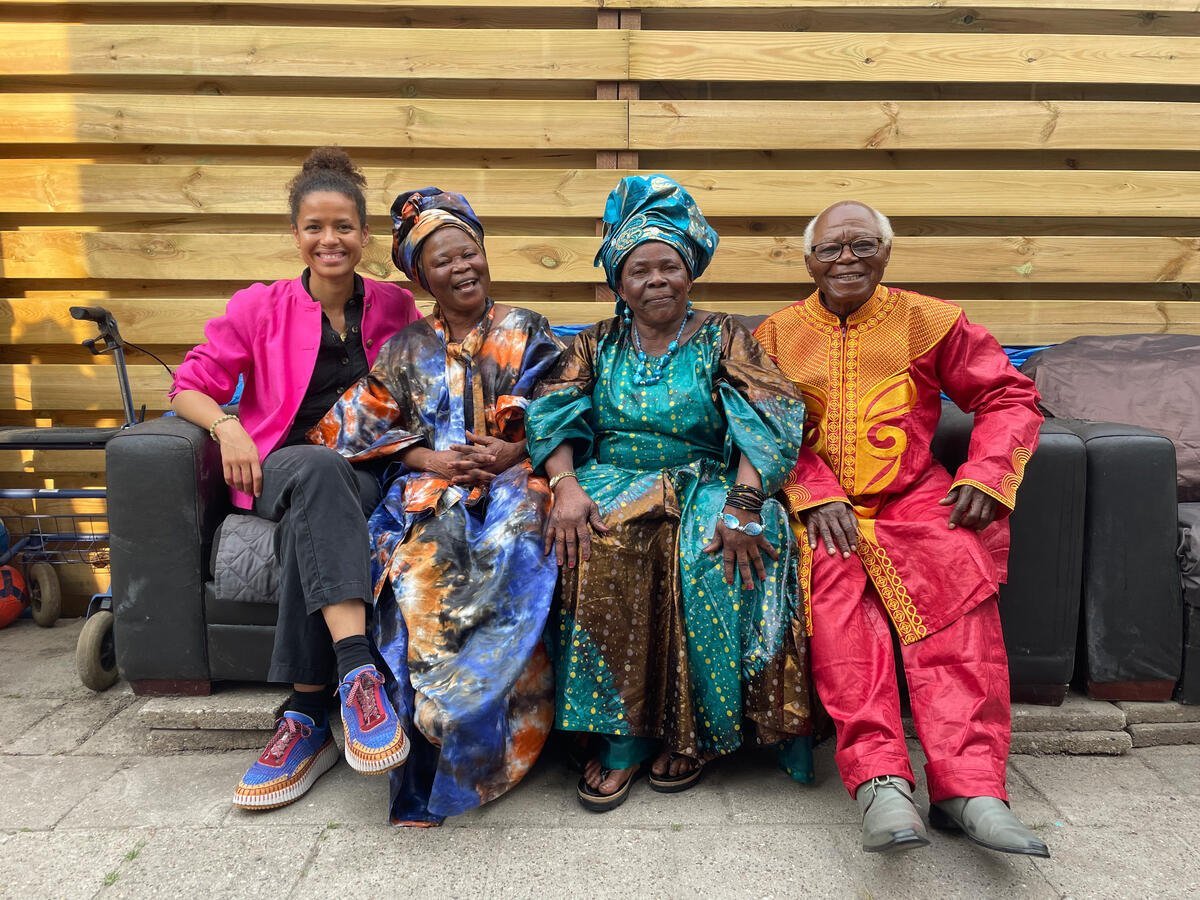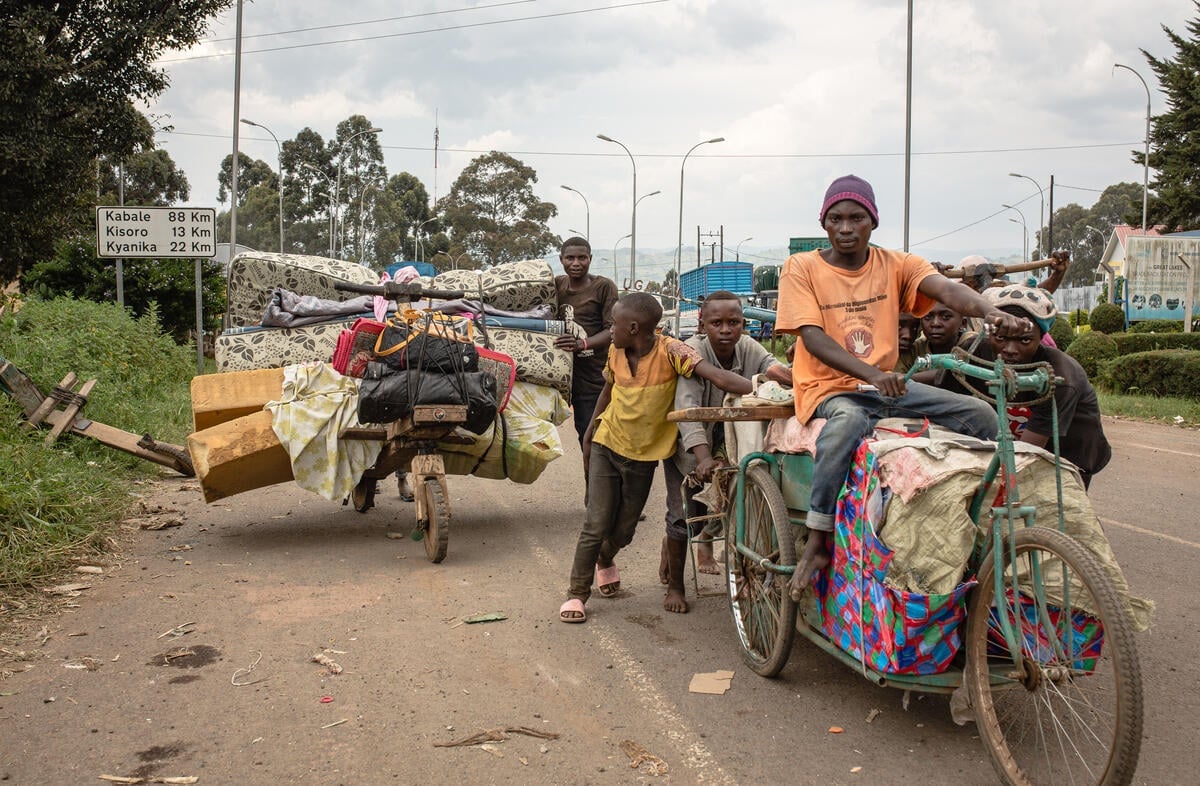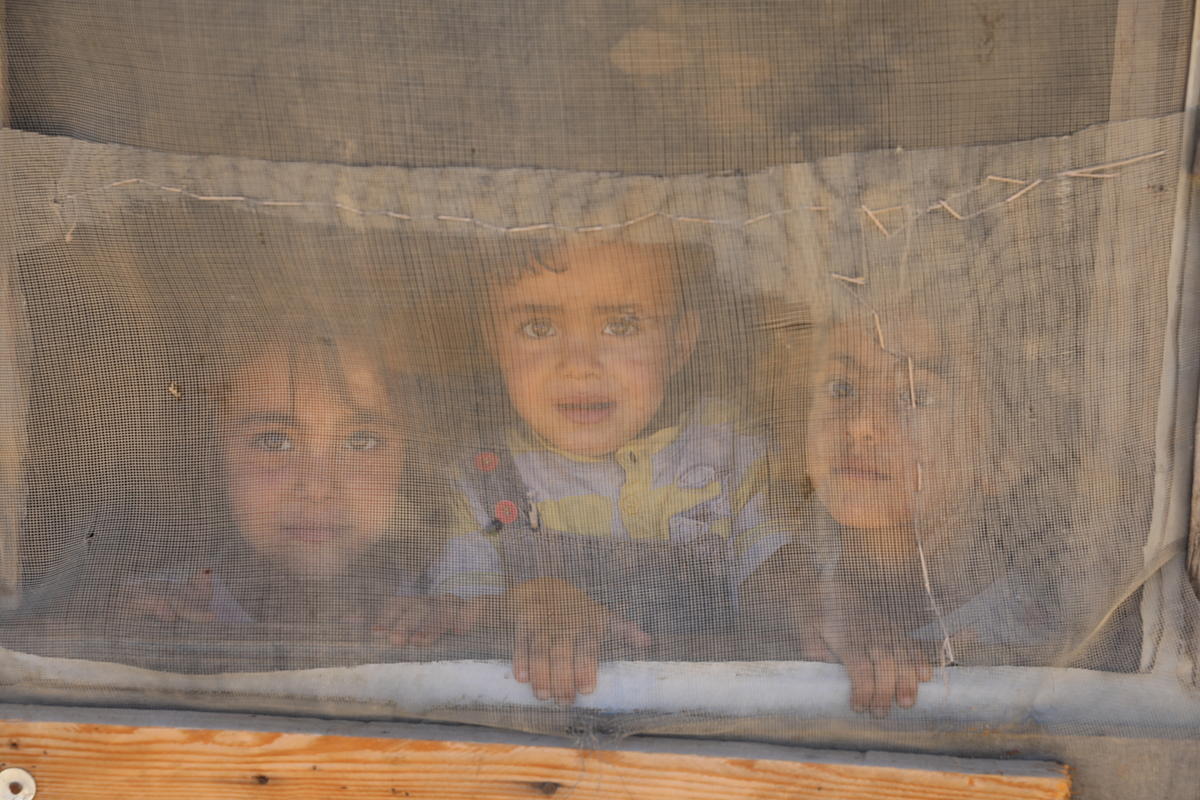First group of Syrian refugees flies to Germany
First group of Syrian refugees flies to Germany

HANOVER, Germany, September 11 (UNHCR) - A first group of 107 highly vulnerable Syrian refugees arrived by plane in the northern German city of Hanover today from Lebanon under a special humanitarian programme announced by the German government earlier this year.
"It is good to be here in a safe area," said one refugee on arrival in Hanover, who referred to himself as William. "It was a horrible time waiting for help and protection," he added.
The refugees, who had fled to Lebanon to escape the escalating fighting that erupted in Syria in March 2011, were taken from Hanover airport to an accommodation centre in Friedland, Lower Saxony, where they will stay for 14 days. The refugees will be offered cultural orientation courses - basic language training and basic information on Germany, including the school and health systems, as well as help in interacting with the local authorities.
At the end of the two week period, the refugees will leave for locations across Germany. They will live in small centres or apartments and will have full access to medical, educational and other social services. During their stay, the refugees will have the right to work.
Under Germany's Humanitarian Assistance Programme, announced in March, the refugees will be issued with a permit to stay for two years, with the option to extend if the situation in Syria remains unchanged.
Michael Lindenbauer, UNHCR's representative in Germany, praised the German government for its humanitarian initiative. "Germany is the first country in Europe to implement a humanitarian admissions programme for Syrian refugees with special needs," he noted, while adding: "The broad consensus reached in politics and society to support this initiative is exemplary."
The programme provides for up to 5,000 places for Syrian refugees, and as such is the biggest relocation programme in existence for the most vulnerable victims of the Syria crisis. "UNHCR teams in the Syria region are currently preparing additional referrals for this programme, which we expect to be fully subscribed by the end of 2013," UNHCR's chief spokesperson, Melissa Fleming, told journalists in Geneva. "The International Organization for Migration is involved with us in organizing travel, pre-medical checks, and other support," she added.
Resettlement of refugees, whether formal resettlement or expedited relocation - as is the case with Germany's Humanitarian Admissions Programme - is a vital and potentially life-saving tool for helping particularly vulnerable refugees. Those resettled may be women and girls at risk, people with serious medical conditions, survivors of torture or others with special needs.
UNHCR announced in June of this year, in its 2013 Syria Regional Response Plan, that it was seeking 10,000 places for humanitarian admission and 2,000 places for resettlement of Syrians in acute need. Since then - Germany and Austria have committed places for humanitarian admission (5,000 and 500 respectively) - whereas a number of other countries have come forward with offers of resettlement places.
These include Australia, Canada, Denmark, Finland, the Netherlands, New Zealand, Norway, Spain, Sweden and Switzerland. Together these countries have pledged more than 1,650 resettlement places, 960 of which are for 2013. The United States of America has indicated that it is willing to consider an additional unspecified number of cases.
Fleming said UNHCR urged states to come forward with further offers of resettlement or relocation. "In particular, and because of the growing size of the Syria refugee population in countries neighbouring Syria, we hope to see countries offering places outside their current annual quotas and allowing for expedited processing. This would help meet the needs of highly vulnerable Syrians, and it would ensure that resettlement opportunities remain available for highly vulnerable refugees from other countries," she said.


